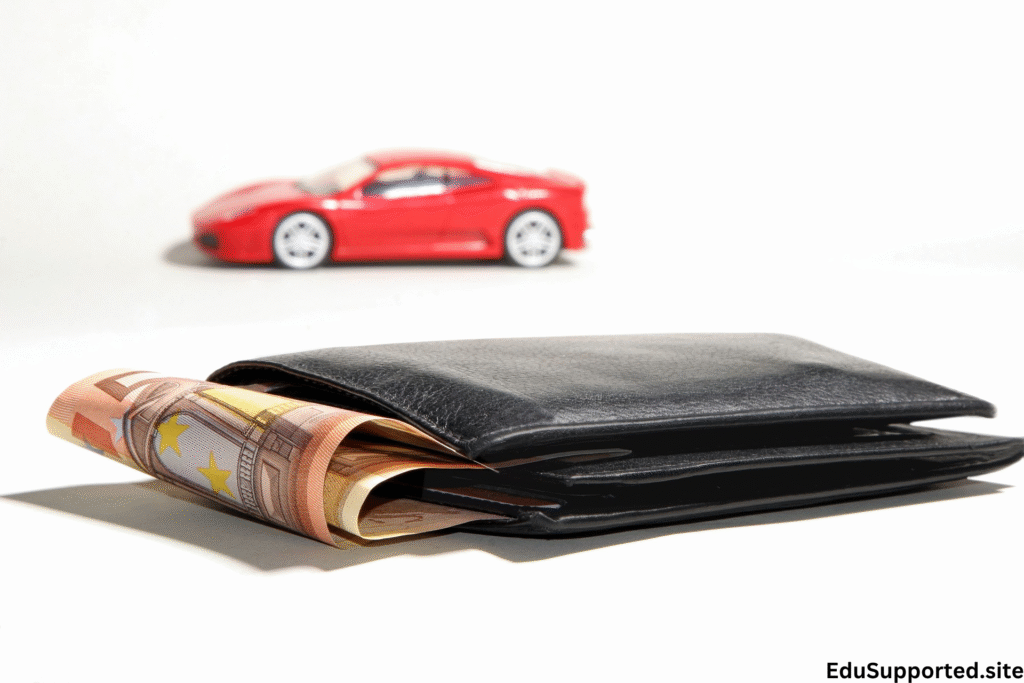Applying for a car loan while still paying off student loans is a common experience for many people, including recent graduates and current students. Many people in their twenties and thirties struggle to build financial security while simultaneously managing many debts. Understanding the interplay between student loans and vehicle loans may help you avoid pitfalls and make wiser financial decisions.
In this detailed tutorial, we will discuss the criteria that lenders use to establish approval for a car loan, the effects of having outstanding student loans on this process, and ways to improve your chances of being accepted.
Understanding the Impact of Student Loans on Automobile Financing
In approving a car loan application that also includes student loan debt, lenders look at your whole financial picture, including any existing debts. Lenders use the debt-to-income (DTI) ratio, which includes student loans as one of your financial commitments, to determine your ability to repay future loans.
Can You Tell Me the Debt-to-Income Ratio?
A person’s debt-to-income ratio may be calculated by comparing their monthly payments to their gross income. When your monthly income is $5,000 and your monthly debts (including rent, credit cards, student loans, etc.) are $1,500, your debt-to-income ratio is 30%.
Lenders want a lower DTI ratio since it demonstrates that you have sufficient income to repay other loans, like a car loan. Lenders usually aim for a DTI below 40-45%, even though the ideal DTI is usually closer to 35%.
How Your Student Loans Might Affect Your Ability to Get a Car Loan
Since your monthly financial responsibilities are increased due to student loans, your eligibility for a car loan may be affected in many ways:
-
Your debt-to-income (DTI) ratio will rise as a consequence of your student loan debt, which might lead to increased interest rates or a decrease in the amount of loans you are eligible for.
-
Effect on Credit Score: Paying off student loans on time helps build credit, however paying them late lowers credit score and makes it harder to get a decent car loan.
-
Lenders may provide shorter loan terms or higher interest rates to mitigate risk when you have a large amount of student loan debt.
Methods for Obtaining a Vehicle Loan with a Student Loan
Having outstanding student loans could make it difficult, but not impossible, to get a car loan. Here are several strategies that might improve your odds:
1. Get a Better Credit Score
You may attribute a large portion of your loan approval and interest rate to your credit score. To get a better result:
-
Make timely payments on all of your student loans.
-
Keep your credit application to a single product.
-
Retain manageable amounts on your credit cards.
2. Lower Your Debt-to-Income Ratio
Raising your salary or eliminating other debts are two options to improve your debt-to-income ratio. Lenders will see this as proof that you can responsibly take on more debt.
3. Save Enough for a Larger Down Payment
You may show the lender that you’re serious about the loan and get a cheaper interest rate with a higher down payment. Also, your monthly payments may go down and your loan approval odds might go up.
4. Gather a Co-Signer
If your income and credit aren’t strong enough to acquire a loan on your own, a co-signer with better credit can increase your approval odds and perhaps earn you a lower interest rate.
5. Consider Other Lenders
Every lender has their own set of criteria. Check with traditional banks, credit unions, and online lenders to see which one offers the best terms for your situation.
When You’re Deep in Debt, Other Choices Than Auto Loans
If you’re having trouble getting a car loan because of your student loans, here are some more options to consider:
-
Pay less in the long run and less in the initial outlay when you lease a car instead of buying one.
-
Attempt to buy a trustworthy used automobile with cash if you want to avoid taking on further debt.
-
Purchase Delay: Work on paying off your school loans and improving your credit score before you apply for a car loan.
Frequently Asked Questions Regarding Auto Loans and Student Loans
Is It Possible to Get a Car Loan with Only a Student Loan History and No Other Types of Credit?
Yes, albeit it can be challenging. Lenders lean towards applicants with more varied credit histories. Consider getting a small personal loan or a secured credit card to build credit before you apply.
Is It Relevant if a Student Loan Is Private or Government When Deciding Whether to Approve a Car Loan?
The kind of loan you have is less important to lenders than your payment history and total debt. However, you may find it easier to manage your DTI ratio with federal loans because of the more flexible repayment schedules they often provide.
Is It Better to Pay Off My Student Loans Before Applying for a Car Loan?
You may reduce your DTI ratio and become a better loan applicant by reducing your overall debt. Making extra payments to reduce the debt might even be advantageous.
Final Thoughts on Handling Auto Loans and Student Loans Properly
Paying down both your student loans and your car loan requires careful planning and financial discipline. While having student debts could make your credit report more complicated, it won’t always exclude you from getting a car loan. By managing your debt-to-income ratio, improving your credit, investigating the best loan options, and understanding the financial implications of your student loans, you may get a car loan that fits your budget.
You should know that buying a car is a huge financial commitment. Before you agree to any conditions for your student loans, be sure you can afford them. This includes the monthly payments as well. We can build a stronger financial future for tomorrow by borrowing wisely now.
